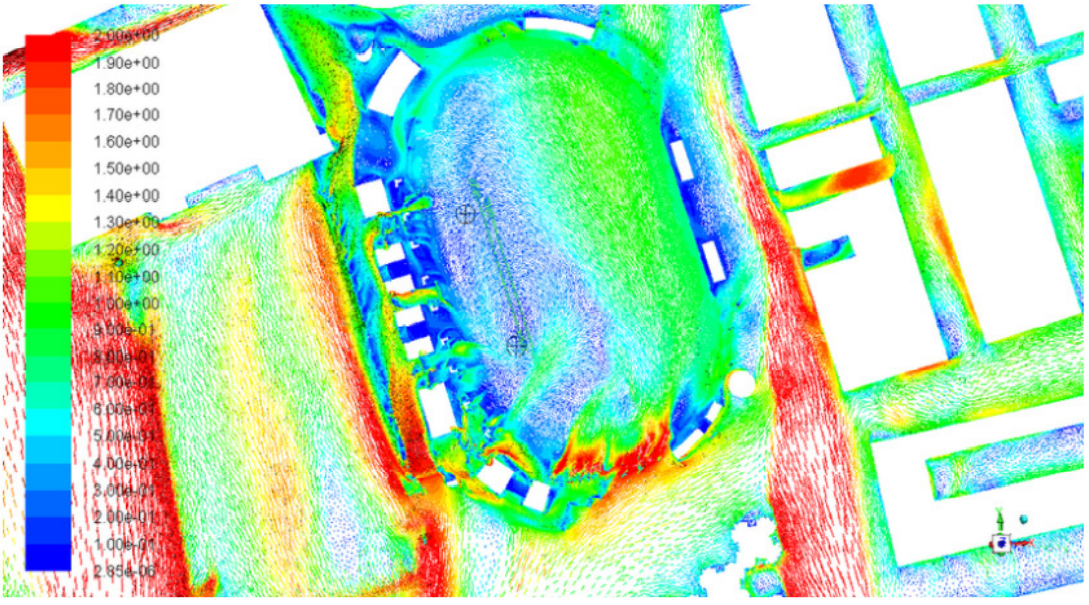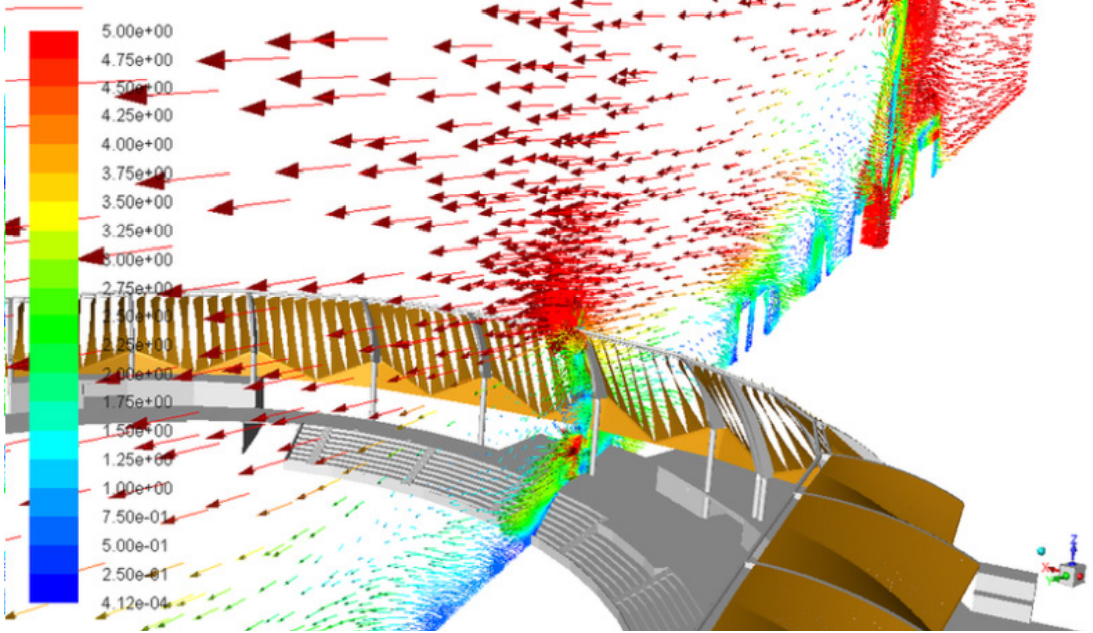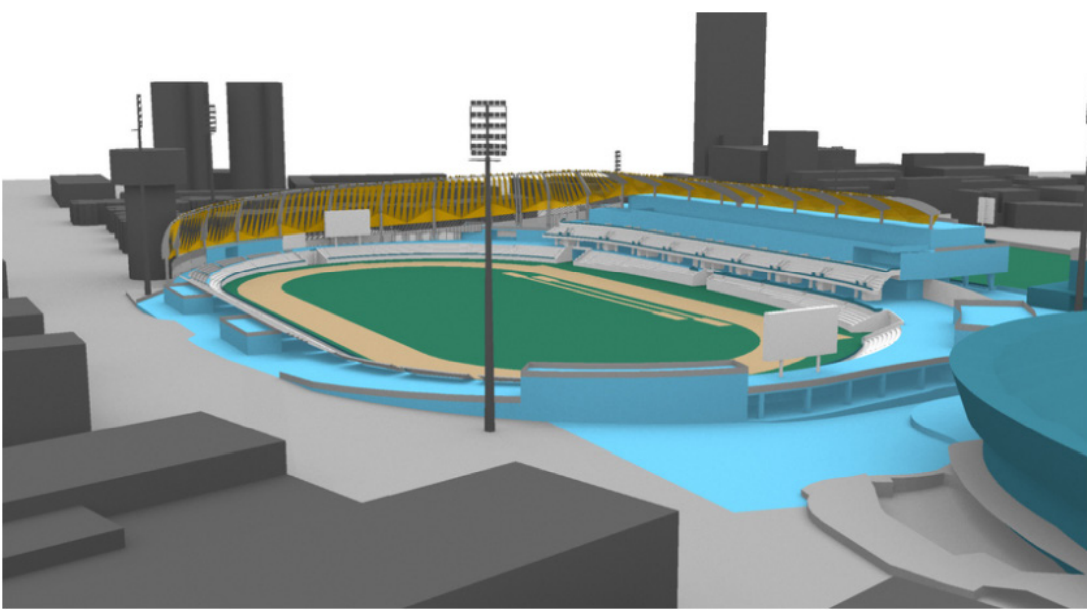Owner: K8T Ltd.
Field of expertise:
Methods:
Application area:
Industry:
K8T Ltd. provides engineering analysis and high-performance computing (HPC) calculations. Their focus is on fluid dynamics and heat transfer in building physics, pharmaceutical processes, environmental wind modelling, and fire and smoke analysis. They also deliver specialist energy analyses of buildings in concept and operational stages.
Challenges
For Pan American games in Peru, it was needed to analyse stadium wind dynamics. The wind dynamics influences runners during race. Prevailing track dynamics showed that runners could face strong headwinds, skewing results and it could invalidate any world or track record.
In order to improve these conditions, K8T developed a wind screen. They installed the screen inside the stadium, which provided aerodynamic control of the running track. As a result, the wind screen system reduced overall wind speed without creating adverse air flow conditions on the track.
Technologies used
- Ansys Fluent
- Ansys Elastic Licensing
Engineering solution
By using Ansys Fluent via Ansys Elastic Licensing, K8T team ran a computational fluid dynamics (CFD) analysis of the proposed screen design with detailed modelling of local wind characteristics. They obtained insights into the characteristics of wind flow needed to comply with conditions for wind assistance during track and field events.
K8T engineers installed wind anemometers at the stadium and coupled them with the CFD model in order to optimize the screen design. Also, a 3D scan of the structure was made and fins/sails in the model were adjusted to avoid any construction issues and to optimize the screen’s performance.
Benefits
K8T used Ansys Elastic Licensing and its own cluster to scale up and run the analysis of the larger model. Due to the possibility to run a large model, they didn’t need any simplifications for the CFD analysis of the screen. This helped engineers to obtain the most accurate results. Such accurate results enabled engineers to design the screen in a way that it optimizes the wind flow on the track adaptively, depending on the strength of the wind.

Wind flow inside the stadium

Streamlines of the wind inside the stadium with the wind screen

Stadium with the wind screen